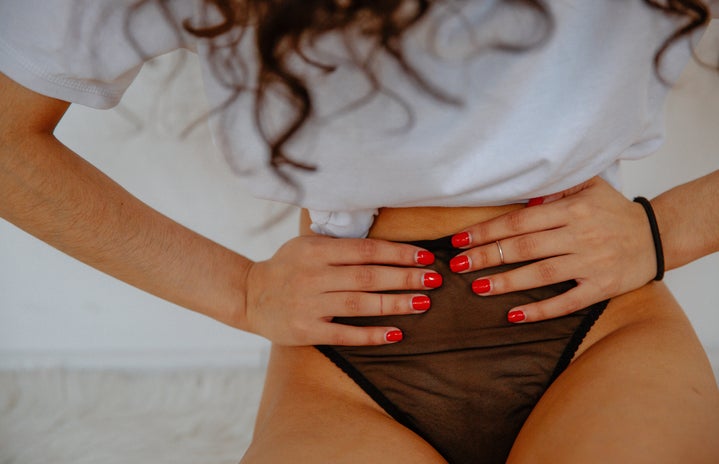Half of the world’s population menstruates monthly, but people do not like to openly talk about periods. There is a stigma around menstruation that it makes women “dirty”, but this stigma needs to be erased. People who menstruate – yes, not just women menstruate – should be comfortable talking about their periods and men should be supportive and nonjudgmental, but this is not the case. In most religions, there are restrictions placed on women when they are on their periods (Bhartiya).
In Menstruation, Religion and Society Bhartiya discusses how different religions view women when they are menstruating and how this has contributed to how society as a whole views periods. This stigmatization of periods seems to stem from the barbaric belief that periods make women “impure” (Bhartiya). This negative attitude can be seen today as women still feel the need to hide their periods and keep everything discrete. Bhartiya discusses euphemism and how a lot of women use them when they discuss their periods because it makes them feel more comfortable (Bhartiya). It’s sad that people do not feel comfortable discussing their period in plain terms because it is a natural phenomenon that happens to literally 50% of us.
Bhartiya does a very good job of explaining the ways that different religions view menstruation and then connecting this to how society as a whole views menstruation. As a woman, it’s very frustrating that I feel that I can’t talk openly about my period because I don’t want to be judged. For some people, their period can be very painful and a lot of people have to deal with this in their workplace. While a lot of people feel comfortable stating that their head hurts, or their stomach hurts from what they ate, saying that you have cramps is often seen as unacceptable even though it is no different than the latter two examples.
One study that surveyed young men aged 18-24 years old revealed how men learned about menstruation and their views on it. A lot of these young men learned about it from their family or when it was mentioned at school, but the information that they received did not go in depth or explain menstruation very well (Allen). This lack of information can create a gender wedge that can either work with or against women. It can work in women’s favor when they are discussing something to do with periods, and they want a man to leave them alone – which is sad because men shouldn’t be so uncomfortable. But menstruation can also be a topic of bullying for women, and some get shamed for it. This is especially a problem for young girls in school. I remember being in high school and being so paranoid that someone was going to see me grab a tampon out of my locker – that’s unacceptable. We need to work on creating a more inclusive environment for people who have periods.
The way that men view this topic from a young age sets the stage for how they will view menstruation later on in their lives. These men now view menstruation in one of these three categories: shameful, gross, and an uncomfortable topic; a mature topic that they are working towards being comfortable with; or being comfortable with the topic because of the intimate relationship they have with a woman. The area I am most concerned about is the first one, that men view menstruation as shameful and gross. This is most likely from their lack of education on the topic and the societal norm that treats periods as a taboo.
The lack of education is something that is a lot easier to “fix” than changing how people view the way that some religions view menstruation. Men and boys should be educated on menstruation so that both people do not feel uncomfortable talking about periods. Menstruation is what allowed all of us to be born – it is essential to the female reproductive system. It still blows my mind that in 2021 people are uncomfortable talking about something that happens to 50% of the population once a month.
Sources
Allen, K. R., Kaestle, C. E., & Goldberg, A. E. (2010). More Than Just a Punctuation Mark: How Boys and Young Men Learn About Menstruation. Journal of Family Issues, 20(10), 1-28.
Bhartiya, A. (2013). Menstruation, Religion and Society. International Journal of Social Science and Humanity, 3(6), 523-527.


